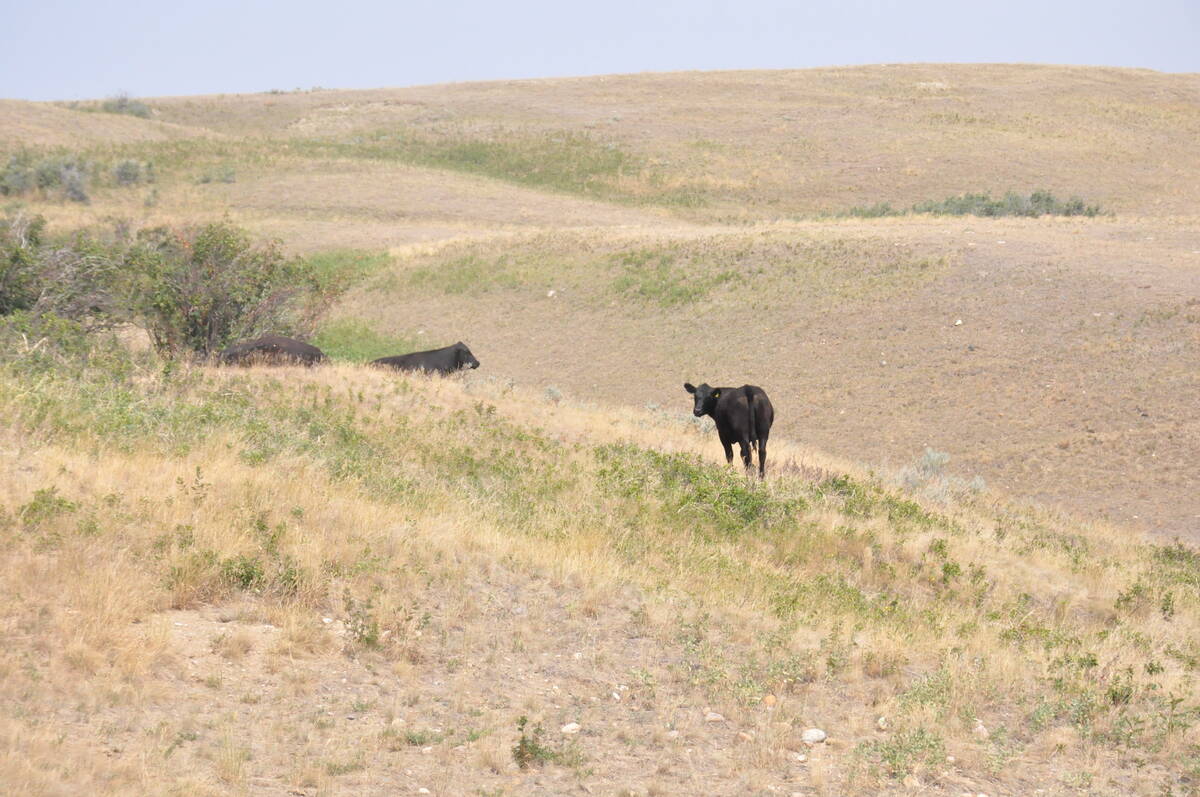CHARLOTTETOWN, P.E.I. — Farmers are challenging a moratorium on high-capacity wells for agricultural use in Prince Edward Island.
The province applied the moratorium in 2002 when a dry year brought a drastic increase in water well applications.
Twelve years later, farmers still cannot drill additional wells that could be used to irrigate crops when the typical 1,100 millimetres of annual rainfall doesn’t materialize.
A dry year in 2011 and water restrictions applied to Charlottetown last year, when supplies ran short and the city dug additional wells, have shone a brighter spotlight on the issue.
Read Also

Saskatchewan tests new forage insurance program
Saskatchewan Crop Insurance Corp. tested a new forage insurance program this past summer as it looks for ways to better protect cattle producers.
However, farmers say additional high-capacity wells, which draw more than 400 gallons per minute, could reduce their risk and help the potato industry in particular remain sustainable.
Jason Webster, who operates Middleton Farms Ltd. with his father and is co-owner of the Mid-Isle Farms potato storage and sorting facility, is among those lobbying for the moratorium’s end.
His farm lost potato production and quality in 2011 when drought struck during the growing season.
“Our crops were cut pretty near 50 percent that year,” he said in an interview after an Oct. 4 presentation to the Canadian Farm Writers Federation conference. “The people that had irrigation that year, it made a big difference. A huge difference. Those that didn’t took a big hit.”
McCain’s and Cavendish Farms, P.E.I.’s two potato processors, had to bring potatoes from other provinces to operate their plants, said Webster.
“We believe that irrigation is going to be a vital tool to keeping our industry sustainable,” he said during a panel presentation.
“Does it need to be on all acres? Absolutely not. Will it ever be on all acres? Absolutely not.”
The provincial government has pledged to develop a water act to deal with the issue of high capacity wells for agricultural irrigation.
George Somers, manager of drinking water and waste-water management for the province, said the goal is to develop a comprehensive water policy that will “get away from this patchwork” of regulations.
Although research on the island’s groundwater is sound, he added, more information is needed on the potential impact of water well pumping on stream flow.
“We cannot get an answer yet, and this is a worldwide thing, as to how much water we leave in the stream to protect aquatic organisms,” said Somers.
The effect of additional wells on small streams is also a concern.
Steven MacKinnon, a farmer and member of the Coalition for the Protection of P.E.I. Water, agreed on the need for caution but criticized delays in water act development and implementation.
“The government has done a real poor job since the moratorium was put on in 2002. Moratoriums are only in place to hold things where they’re at until something’s been dealt with,” he said. “They had 12 years to do some really good scientific data … and basically it appears that they haven’t done a whole lot, and if they have, they did a poor job of taking it to the general public.”
Webster said 6,600 acres are irrigated now, mostly using the 36 wells established before the moratorium. He estimated up to 30,000 acres could be irrigated if the ban was lifted, though it would evolve over 10 to 15 years.
“It’s not something that’s going to happen overnight, and that’s what we’ve been trying to say, too,” he said.
Irrigation will not be needed in some years, Webster added.
Producers who farm on existing irrigated land apply an average of 2.5 inches over the growing season, but they applied about five inches in 2012 and 3.5 inches last year.
“That’s been our struggle, to try and get into the public’s view, is that we’re not looking for big amounts of water,” he said. “We’re actually looking for very little.”
Somers said studies show no evidence of declining groundwater levels or changes in stream flow from current activities.
The province uses only seven percent of the water available for extraction, according to provincial data, and groundwater is replenished every year. Water not extracted from streams flows directly into the ocean.
Cavendish Farms, the province’s biggest potato processor, has said it may be forced to downsize its operations if the government doesn’t lift the moratorium.
That concerns Webster, who recalls how the 2011 drought affected production and quality. The ability to irrigate could eliminate a repeat of that situation.
“We’re in a real good position to be extra competitive because we don’t need to irrigate all the time,” he said.
“We don’t need to hurt our water supply. We have it naturally. But one dry week can just cause a major, major problem.”
Webster said he and other growers agree water use must be monitored and urban supply protected, along with the health of groundwater and stream flow.















